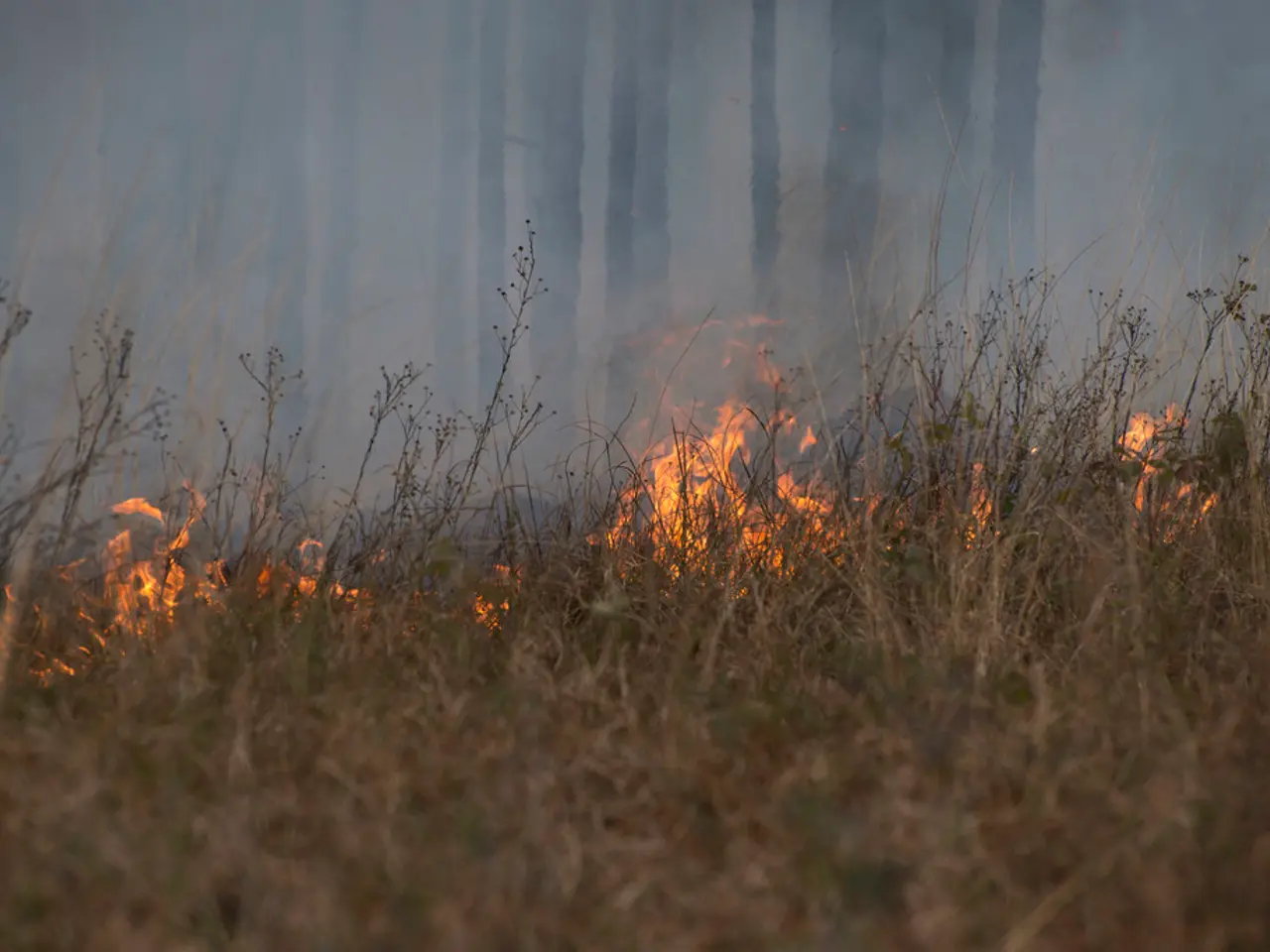Southern Europe and Turkey witness a decrease in wildfires, yet temperatures continue to soar.
Southern Europe Battles Record-Breaking Wildfires Amidst Extreme Heat and Drought
Southern Europe is currently grappling with one of its worst wildfire seasons on record, with Portugal, Spain, Greece, Italy, and Turkey all experiencing the brunt of the crisis. The region is facing record-breaking high temperatures and extremely dry conditions, creating an abundance of dry fuel that intensifies fire severity.
In Portugal, a fire near the small town of Ponte da Barca has been raging for days, but Elisio Oliveira, head of civil protection, has stated that the flames are almost under control. Meanwhile, over 70,000 hectares of forest, bush, and farmland have been destroyed by fires in Portugal and Spain this year.
Spain is also battling wildfires, with the second major forest fire in Las Hurdes now under control. However, unfavorable weather conditions, including a new heatwave with temperatures over 40 degrees Celsius, are expected to affect the country.
Greece and Turkey have been particularly hard-hit by the wildfires, with continual high temperatures heightening fire danger. More than 2,000 forest fires have broken out in Turkey this year, resulting in at least 14 deaths, including firefighters. Firefighters in Turkey have largely controlled the forest fires, with isolated fires reported in Thrace and Izmir.
Italy's southern regions have seen some relief forecast-wise, but risks remain, particularly in the south, with the island of Sicily being particularly affected. Over 3,700 fires have been recorded in Sicily between May and late July alone. Sardinia has also had to deal with several fires this week.
The Greek fire service is on high alert due to expected strong winds that can drive the flames forward and complicate firefighting efforts. However, rainfall in Cuevas del Valle, Spain, has helped firefighters almost completely extinguish the fires.
Efforts in the EU are increasingly focused on shifting from reactive firefighting to proactive wildfire prevention and landscape resilience. This strategic change aims to reduce the frequency and intensity of megafires in the future, which is critical given the rising scale and destructiveness of such events.
Despite these efforts, the overall outlook remains concerning due to ongoing climate pressures and fuel availability. While some improvement in fire weather risk is projected soon for parts of southern Europe, the situation remains tense, and vigilance is required to combat the ongoing wildfire crisis.
- The ongoing wildfire crisis in Southern Europe is significantly associated with the field of environmental science, particularly climate-change research, as the extreme heat and drought conditions fueling the fires are indicative of global warming effects.
- General news outlets are extensively reporting on the wildfire season in Southern Europe, highlighting the devastating impacts on countries like Portugal, Spain, Greece, Italy, and Turkey.
- Weather forecasting plays a crucial role in managing the wildfire crisis, as accurate predictions can help in preparedness and proactive measures to prevent accidents such as fires.
- The wildfires have had a devastating impact on the environment, with large areas of forest, bush, and farmland being destroyed, which might necessitate future studies in the field of science, such as weather or environmental science, to understand the long-term effects of these events.








